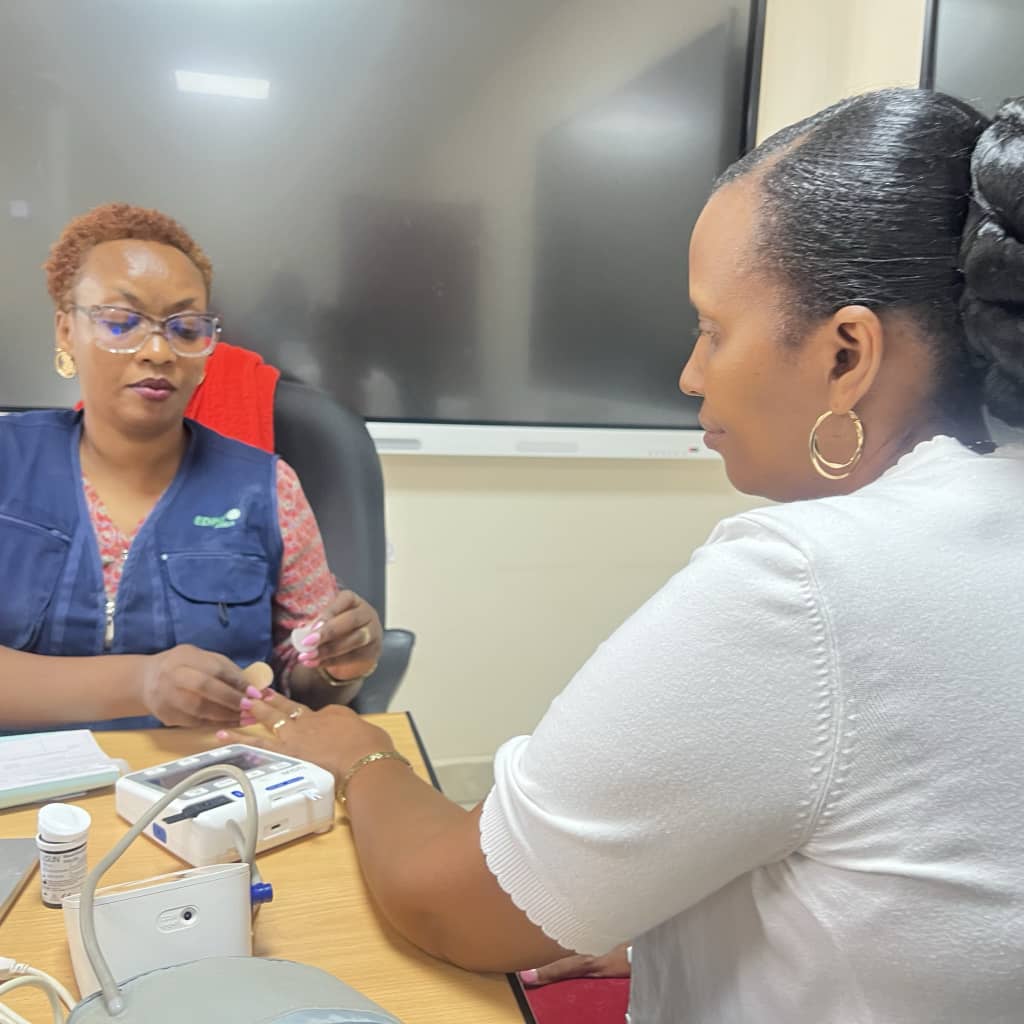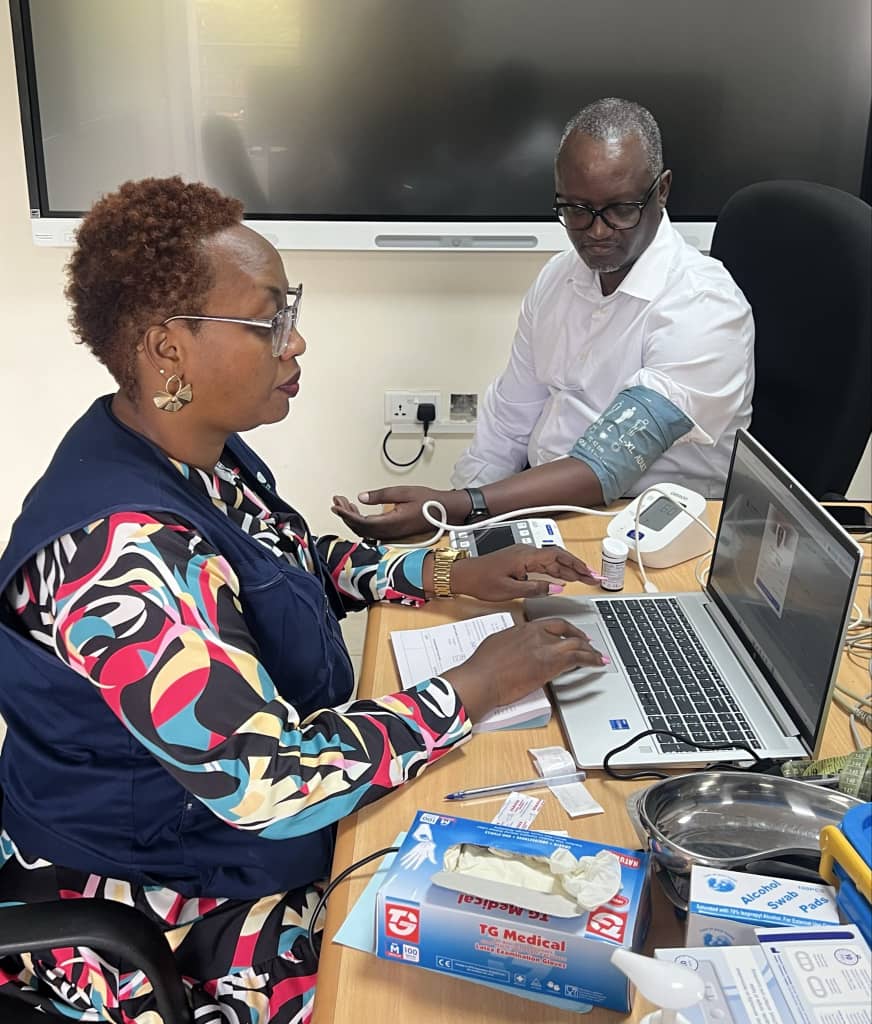By Roxane Kundwa, Isimbi Flavia, Uwimbabazi Shirah, and Akaliza Emelyne
“You can look healthy but still be at risk. Screening gives people a second chance before the illness becomes serious,” says Kayitesi Liliane, a nurse practitioner with EDPU Africa.
Under a white tent at a small clinic in Kiyovu, nurses from EDPU Africa are busy checking blood pressure, sugar levels, and body mass as community members come forward. Nearby, patients listen as a nurse explains how untreated hypertension can lead to serious long-term illness. These grassroots screening events are becoming more common in Kigali and are part of a broader push to tackle non-communicable diseases (NCDs) across Rwanda.
EDPU Africa, a digital health organization founded in 2021, has already screened more than 25,000 people in over 650 locations nationwide. Their screenings include blood pressure, blood sugar, cholesterol, and even mental health checks. All results are stored digitally, enabling follow-up services and connection to health facilities. Early detection, according to the team, is key, especially for NCDs that often remain silent until they cause irreversible damage.
The urgency of their work is backed by national data. According to the National Institute of Statistics of Rwanda (NISR), non-communicable diseases were responsible for 47.7% of all medically certified deaths in 2024, making them the leading cause of mortality in health facilities. This marks a higher share than many infectious diseases, underscoring how Rwanda’s disease profile is rapidly shifting.

Hypertension, a major risk factor for cardiovascular disease, is especially common. A WHO STEPS survey found the prevalence of high blood pressure in Rwanda to be approximately 16.8% among adults, with higher rates among older people and those with obesity or who consume alcohol. Meanwhile, the Rwanda Biomedical Centre (RBC) reports a troubling gap: out of more than one million Rwandans estimated to have high blood pressure, fewer than 80,000 are enrolled in clinics for diagnosis and treatment.
EDPU Africa’s mission aligns with national health strategies. The country’s National Strategy and Costed Action Plan for NCDs (2020–2025) prioritizes early detection, behavior change, and long-term care. At the same time, global health organizations, including the WHO, have flagged NCDs as a growing threat, given lifestyle changes, aging populations, and urbanization.
Real stories illustrate the impact: Jean-Claude, a 32-year-old motorcycle taxi driver, says he came for a free screen and discovered his blood pressure was dangerously high. “Now I exercise, eat better, and feel stronger,” he says. “Screening saved my life.”
Despite growing awareness, challenges remain. Some community members still believe NCDs only affect older or wealthy individuals, or shy away from testing due to fear of a diagnosis. Others cannot afford the long-term treatment once a condition is identified. EDPU Africa is working to address this by partnering with the Ministry of Health, community insurance schemes, and mobile clinics to support patients in both urban and rural areas.
“Our dream is to make early detection normal for everyone,” says Kayitesi. “If we save even one life, we have succeeded.”
As nurses pack up after a day’s work, their patients leave more informed, empowered, and hopeful — a reminder that prevention through screening may be one of the most powerful public health tools Rwanda has today.




